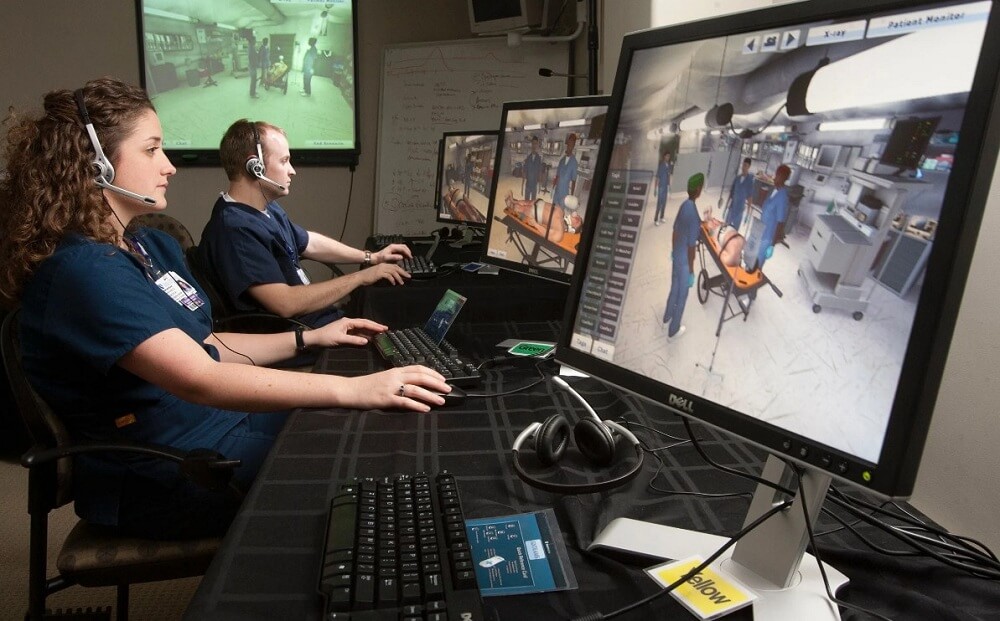The integration of AI into video game development is creating new possibilities for engaging gameplay, interactive environments, and innovative game designs. As a game development company leveraging AI-driven technology to enhance graphics, storylines, and player interactions in ways that were previously unimaginable.
The Role of AI in Game Development
AI in gaming extends beyond just improving graphics. Today, AI helps developers create immersive worlds with dynamic elements, making in-game characters smarter and gameplay more unpredictable. This new approach has led to a boom in AI integration, giving game development companies a competitive edge by adding layers of interactivity that resonate with players. According to a recent study, over 70% of developers report using AI in their games, showing the strong growth of this trend.
Real-Time Adaptation in Games
One of AI’s remarkable contributions is enabling games to adapt in real-time. AI algorithms can monitor a player’s performance, adjusting difficulty levels based on in-game behavior. For example, if a player performs particularly well, AI can increase the game’s difficulty to maintain an engaging experience, enhancing the player’s overall enjoyment. This adaptability is quickly becoming a standard expectation, as game development companies use it to increase player retention and satisfaction.
AI-Driven Non-Playable Characters (NPCs)
AI is transforming how non-playable characters (NPCs) interact with players. Game development companies now employ AI to give NPCs advanced behaviors, allowing them to react intelligently to player actions, thus enriching gameplay depth. Games like The Elder Scrolls and Red Dead Redemption have NPCs capable of initiating conversations or adapting based on the player’s choices, adding realism and immersion to the experience.
Procedural Content Generation
Procedural content generation is another exciting AI-driven aspect that game development companies are utilizing to design endless game environments and challenges. AI can create levels, maps, and even entire game worlds with unique features, ensuring that no two gaming experiences are identical. For example, in Minecraft, procedural generation keeps gameplay fresh and offers players virtually infinite exploration possibilities.
Enhanced Game Testing
Testing is a vital part of the development process, and AI significantly improves it. By automating repetitive tasks and running simulations, AI helps developers detect bugs and performance issues quickly. Some game development companies use AI-powered testing tools that can play games in various ways to find potential flaws, drastically reducing the time spent on manual testing and enabling faster release cycles.
AI-Powered Game Graphics
AI-driven tools like machine learning are helping game development companies create highly realistic graphics without needing enormous resources. Techniques like neural network processing enable real-time rendering, allowing the creation of lifelike textures and visuals. Recently, NVIDIA introduced DLSS (Deep Learning Super Sampling), which uses AI to upscale images and produce stunning graphics even on lower-end hardware, making it possible for more players to enjoy high-quality visuals without requiring expensive setups.
Personalization in Gaming Experience
Through machine learning algorithms, AI allows game development companies to personalize gaming experiences on a large scale. AI can analyze player preferences, game history, and in-game decisions to offer customized recommendations, challenges, and even narratives. This level of personalization builds player loyalty, as gamers feel more connected to content that reflects their play style and choices.
Future of AI in Game Development
The future of AI in game development holds countless possibilities. As the technology evolves, game development companies are expected to implement more sophisticated AI systems, where entire narratives, NPC interactions, and game mechanics could be driven by complex AI algorithms. A recent report states that the global gaming AI market is projected to grow by over 25% annually through 2028, emphasizing its long-term impact.
Challenges and Ethical Considerations
While AI offers substantial benefits, it also presents unique challenges. Game development companies need to consider ethical issues, such as ensuring AI doesn’t create overly addictive gameplay or lead to biased content. Implementing responsible AI practices can help companies leverage AI’s power while remaining mindful of potential drawbacks, which is essential for sustainable growth in the industry.
Conclusion
AI’s role in video game development is transforming how games are created, played, and enjoyed. Game development companies are harnessing AI to revolutionize every stage, from conceptualization to testing, enhancing player experiences in ways never seen before. As AI continues to evolve, its integration into gaming will undoubtedly deepen, creating opportunities for even more engaging, realistic, and personalized games. The future looks promising for AI in gaming, offering boundless potential for both developers and players alike.
Read More: Game Development in 2025 – Trends and Opportunities














